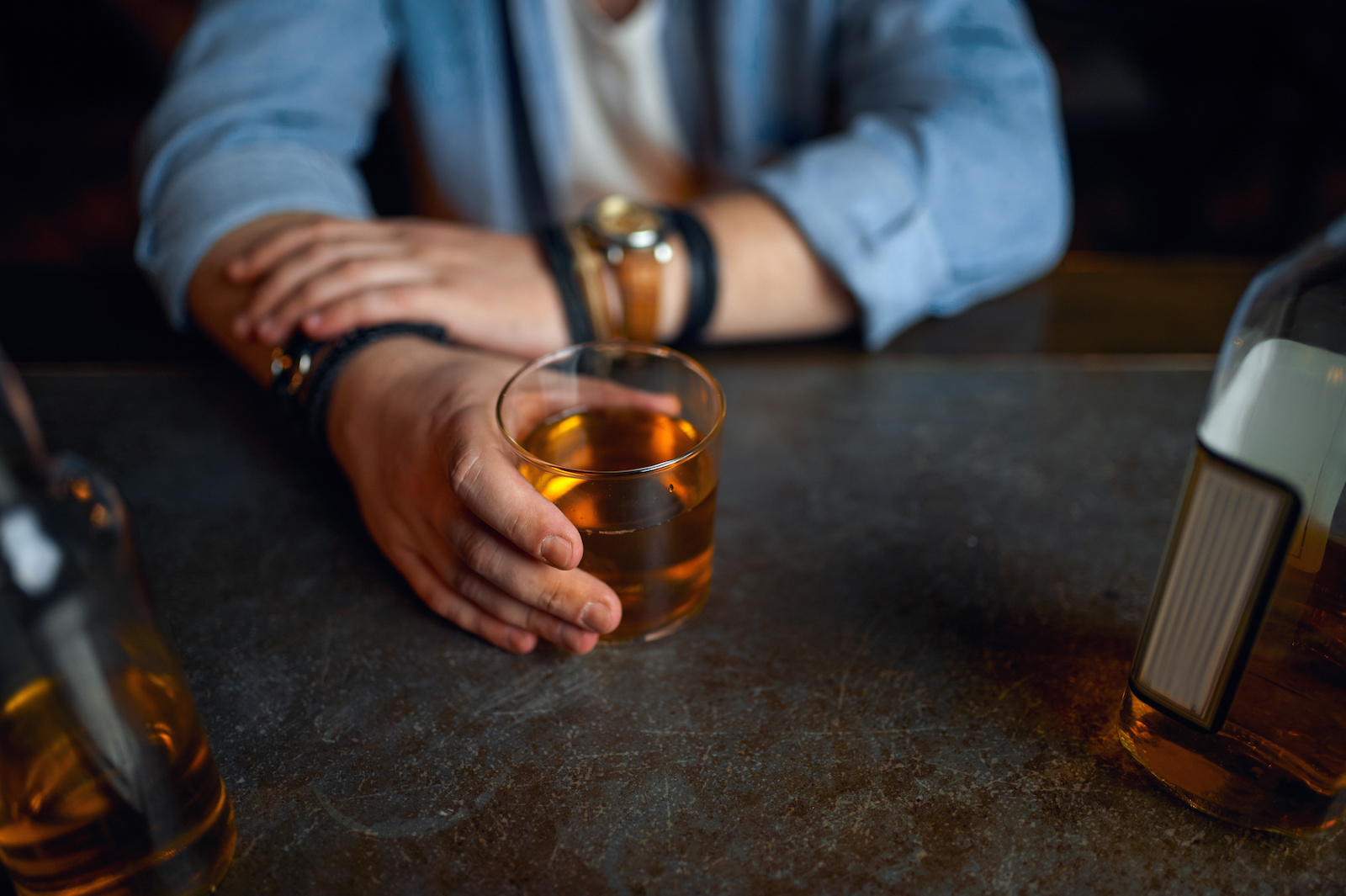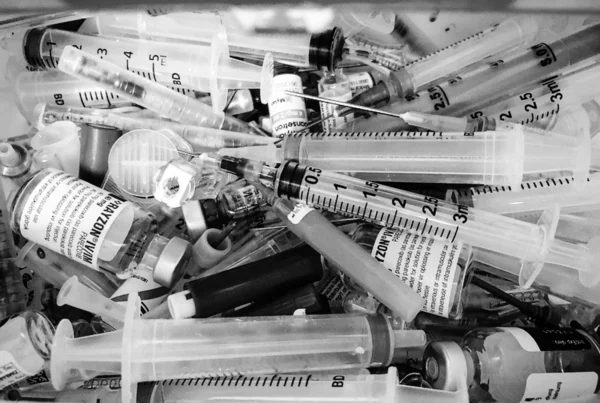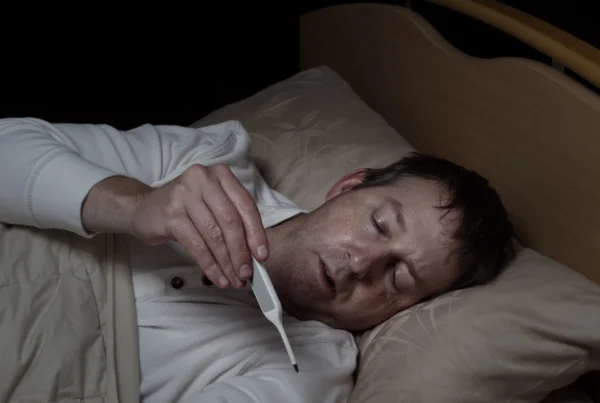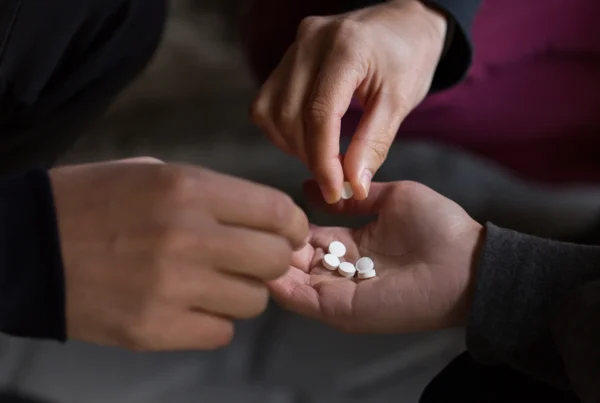
Table of Contents
The symptoms that most of us occasionally feel, like runny nose, itchy eyes that constantly water, and constant sneezing, often indicate an allergic reaction to something. When they hit, the person suffering from them is often desperate for some relief. Luckily, an entire class of medicines can help treat allergies by blocking the histamines that cause them.
These antihistamines are common, over-the-counter drugs that can help mitigate seasonal allergies or symptoms of other minor allergic reactions. They change how histamine interacts with the body and can be essential for individuals with extreme seasonal allergies.
One of the most common antihistamines in the US is Benadryl, which can be obtained at nearly every grocery store and gas station in the country. This means most people view it as safe to take at any time, as long as they stick to the dosage on the bottle. But this isn’t necessarily true. Benadryl is a potent substance, and like any other substance, it has risks alongside the benefits.
These risks can be significant, even when Benadryl is taken as directed. But when Benadryl is combined with alcohol, it can create additional issues and makes some of the potential risks of alcohol more serious.
Side Effects of Using Benadryl and Alcohol
Benadryl, or diphenhydramine, is considered a first-generation antihistamine. When taken as directed when the symptoms and allergies require it, it helps suppress the body’s response to the allergens. This reduces or stops watering and itching eyes, scratchy throat, sneezing, and runny nose.
In the case of an allergic reaction via skin contact that results in hives, it can be used to treat the hives. It is also available in various dosages and forms, including tablets, liquids, chewables, and liquid-filled capsules.
But whether it is used to treat these symptoms or taken recreationally, Benadryl can have some serious side effects. The most common side effects include drying of the mouth, throat, and nose, headaches, and drowsiness.
The less common side effects include loss of appetite, nausea, vomiting, dizziness, muscle weakness, congestion in the chest, increased nervousness, and hyperactivity observed particularly in younger subjects. In rare circumstances, these can be accompanied by pain, difficulty urinating, and sudden vision problems.
Alcohol is a known and powerful depressant of the central nervous system. It causes many side effects in those who use it, both short- and long-term. Alcohol use can result in a significant drop in blood pressure and heart rate. This is because it causes the central nervous system activity to slow to a crawl, just as it does with the user’s metabolism.
When alcohol is consumed in smaller amounts, like those needed to maintain functionality throughout the day, can cause a unique set of side effects. These effects can include irritability and aggression, elevated heart rate, boosted energy, and a heightened sense of self-confidence.
Alcohol also facilitates the release of dopamine, one of the neurochemicals our bodies produce that helps us feel pleasure. This dopamine is released with the first drink, and even though people may feel a stimulant effect at first, it doesn’t last long.
Eventually, dopamine burnout leads to depression, emotional instability, feelings of hopelessness, restlessness, and general malaise. More dangerous side effects of alcohol include significant sedation, drowsiness, potentially dangerously lowered inhibitions, disorientation, tremors, loss of muscular coordination, and a very low heart rate.
Alcohol, even though it is a depressant, can cause users to also go through degrees of sleep deprivation. Even though they are relatively sedated with respect to their CNS activity, the sleep they do get is restless and does not facilitate restful recovery. Long-term alcohol use will tend to create insomniacs, which will then try to medicate with increasingly high amounts of alcohol.
Risks of Mixing Benadryl and Alcohol
There are a large number of risks that can occur if you mix Benadryl and alcohol. Which ones present and how severe they are can depend on many factors, like age, sex, physical shape, medical history, and more.
In all people, mixing Benadryl and alcohol can make it much harder to control their bodies. This reduction in muscular coordination can be dangerous for people of all ages, especially the aging population. The complex interaction of altered and impaired motor skills, the sedative qualities of Benadryl, and dizziness can all result in serious or even severe injuries in older adults and seniors.
This combination of dizziness, motor function impairment, and sedation is also a prime combination for erratic and dangerous driving. Just as you should not operate any heavy machinery, including your vehicle, while under the influence of alcohol, the same restrictions apply to those taking Benadryl. The increased risks of nervous system depression lead to significant reductions in the driver’s ability to stay alert and cogent while driving. The NHTSA, or National Highway Traffic Safety Administration, has also determined that Benadryl impacts drivers more than alcohol.
How to Get Help if Addicted to Mixing Drugs Like Benadryl and Alcohol
If you or someone you know may have become addicted to mixing Benadryl and alcohol, reach out today to a local resource center. Not only will you be able to get more information about how mixing Benadryl and alcohol can present your body with an incredibly risky and dangerous set of conditions. Whether it started with alcohol addiction and taking Benadryl became more frequent or the other way around, getting professional help is always a smart choice.
The individual seeking recovery will have access to medical staff to ensure their acute withdrawal stage goes as smoothly as possible. Once they finish detox, they can work with counselors and additional resources on strategies for strengthening and maintaining their successful recovery while moving forward.
If you or someone you care about is struggling with an addiction, the time to seek help is now. Reach out to a premier rehab facility that can be the support you need and deserve while transitioning from the bondage of addiction to a fulfilling life of sobriety.
Sources:
Ocean Recovery has strict sourcing guidelines and relies on peer-reviewed studies, academic research institutions, and medical associations for our references. We avoid using tertiary references as our sources. You can learn more about how we source our references by reading our editorial policy.
1. Roland J. Benadryl and Alcohol: The Dangers of Mixing Them. Healthline. Published March 8, 2019. Accessed July 30, 2022. https://www.healthline.com/health/allergies/benadryl-alcohol
OCEAN RECOVERY EDITORIAL GUIDELINES
The internet contains a vast amount of misinformation, but when it comes to your health only peer reviewed, research centered data matters. At Ocean Recovery, all content published throughout our website has been rigorously medically reviewed by a doctorate level clinician, and cross checked for medical accuracy. Our editorial process helps our readers trust that the information they are consuming is factual and based upon scientific data. Your health is our top priority, find out more about how we safeguard the integrity of information on our website. Read More About Our Process






